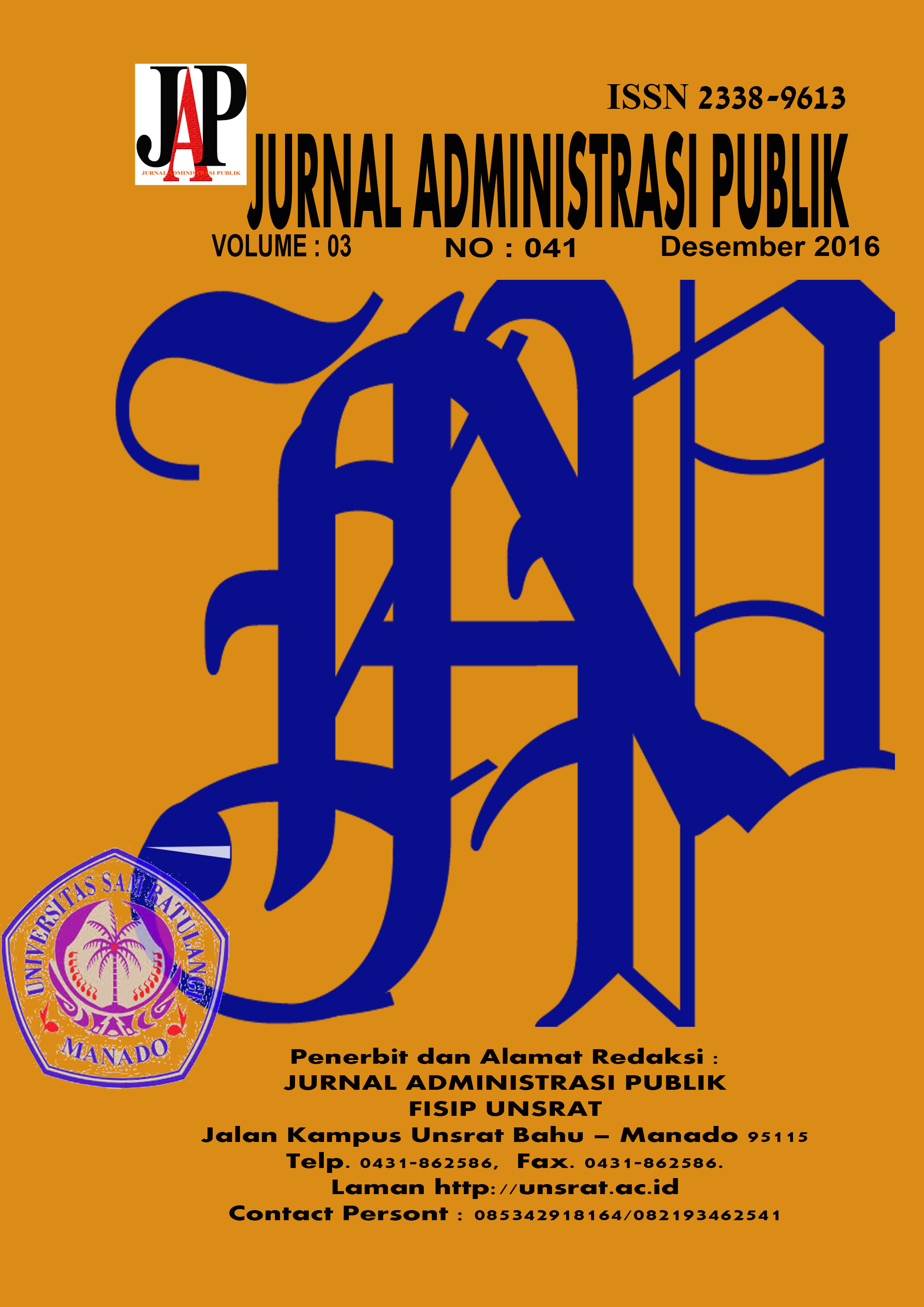The Development Government Agencies Sarmi (A Study on the Regional Employment Board Sarmi)
Abstract
Abstract: Potential Development of Human Resources is very important in order, improve the quality ofpersonnel who are competent and capable of carrying out duties as civil servants and even the community.
Human resource development can be done by means of education and training of both the education and
in-service training as well as education and training positions as stipulated in Government Regulation No.
101 of 2000 on Education and Training. To determine the potential development of human resources
personnel in Sarmi, in this study was conducted using qualitative informant number as many as 10 people.
Efforts Potential Development of Human Resource Apparatus in Sarmi is done by means of education and
in-service training and occupation is already running but is not optimal, it is because first, the Regional
Employment Board Sarmi as implementing education and training is still less put through an evaluation of
the results of education and training ; Secondly, there is still a shortage of teachers (widyaswara) so this is
one of the obstacles in the implementation of education and training in Sarmi.
To realize the potential of human resources personnel in Sarmi, the strategic steps that must be done is
necessary to evaluate the implementation of education and training, and should be pursued additional
teaching staff (widyaswara) in order to expedite the implementation of education and training nets. Besides,
it is expected by the education and training are implemented can have a large impact on the performance
of government officials Sarmi
Keywords: Potential of Human Resource Development Government Personnel
Downloads
Published
2016-12-15
How to Cite
Aweno, E., Dengo, S., & Ruru, J. M. (2016). The Development Government Agencies Sarmi (A Study on the Regional Employment Board Sarmi). JURNAL ADMINISTRASI PUBLIK, 3(41). Retrieved from https://ejournal.unsrat.ac.id/v3/index.php/JAP/article/view/14324
Issue
Section
artikel








